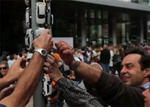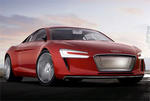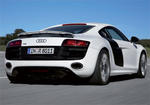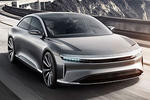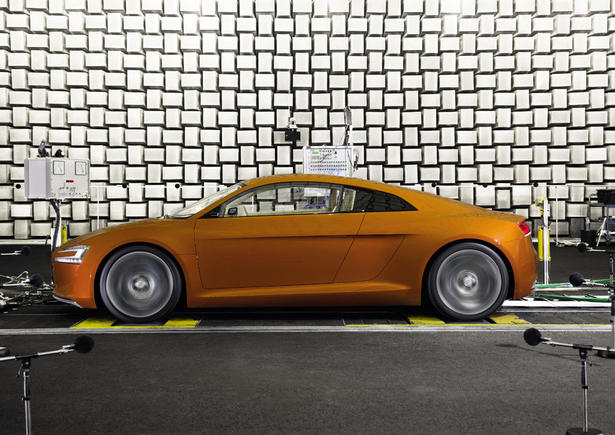
Audi has announced today that it has started the development of various acoustics systems that will "power" future electric cars. Electric cars are notoriously silent at speeds of up to 25 km/h (15.53 mph). This makes them hard to detect by pedestrians which is causing numerous accidents across the globe, some of them with fatal results. Audi's acoustics for electric cars will help them get detected easier by pedestrians, and at the same time improve the experience of driving one.
Some of the sounds that will be emitted by the future Audi acoustics for electric cars include a six-cylinder engine, and the murmur of a V8. The company has also stated that an Audi will always sound like a car, and they will never use different kind of noises.
Audi Press Release:
The sound of silence: How Audi is working on the acoustics of future electric cars
Electric cars are virtually silent at speeds up to 25 km/h (15.53 mph)
Acousticians working intensely on future sound design
Sound should reflect brand’s core values
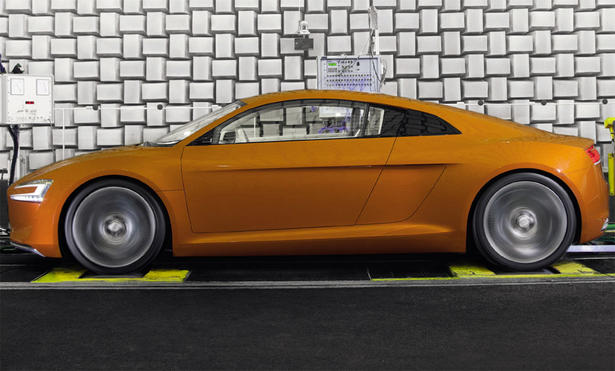
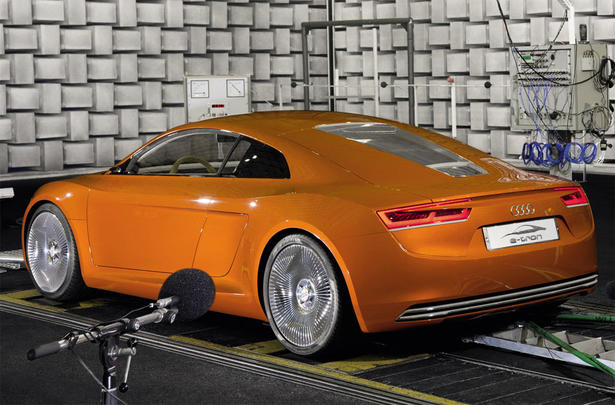
The sonorous sound of a six-cylinder engine; the silky murmur of a V8: the sounds of combustion engines are a constant of road traffic that everyone can associate with a car. With electric cars all that is passé because they are virtually silent up to a speed of 25 km/h (15.53 mph). The risk to others is obvious. There is only one logical conclusion for the sound technicians at Audi: The electric car of the future needs its own sound – but which one?
“We speak of quiet cars when an electric car is driven at a speed between 0 – 25 km/h (15.53 mph),” explains Dr. Ralf Kunkel,
Head of Acoustics at AUDI AG. Up to this speed electric cars are virtually silent as they glide through the streets. Noise from the rolling of the tires and from the slipstream comes to the forefront above this speed, at which point an electric car is no longer significantly more quiet than a conventional vehicle.
The fact that this new form of transportation is particularly quiet is, of course, another factor of its success. After all, environment-friendly automobiles should not only reduce emissions,
but also noise pollution. However, speed without the typical road noises that serve as a signal harbors risks: The sense of hearing allows participants in traffic to monitor all 360 degrees of their surroundings, whereas the eyes only cover a limited angle. People with poorer vision or who are distracted can easily overlook a car.
Organizations for the blind worldwide therefore advocate giving quiet cars a unique sound; specifications or laws to this effect are already in place in the U.S.A. and Japan.
The sound technicians at Audi have long since taken up the task of protecting pedestrians in the electric mobility era.
“One way do this is by generating artificial noise in electric cars,” says Kunkel. The acousticians are currently hard at work on the sound design of the Audi e-tron. It is not just a matter of safety, but also a question of how the Audi of the future should sound.
“The obvious approach would be to work on the basis of the familiar sound of a combustion engine,” says Christian Schüller, Head of Brand Development/Corporate Identity. “On the other hand, we want to underscore that an electric or hybrid Audi is an innovative product. We also want to make our Vorsprung durch Technik audible in the era of electric mobility.”
The rustling of leaves, the twittering of birds or shrill tones such as those used on snow cats are therefore not viable options. However: “The sounds used for space ships in films are reminiscent of car sounds, yet are also very different, making this a rather interesting approach,” says Kunkel. An Audi will not sound like an airplane with jet engines or a space ship from a science fiction film any time soon, though. “But the sound will be new and unusual. The Audi RSQ from the Hollywood film I, Robot gives an indication of how an Audi might sound in the future.”





